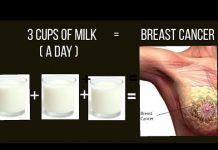The Physicians Committee for Responsible Medicine (PCRM)—a medical group that counts 12,000 doctor members—issued a demand to American Heart Association (AHA) President Robert Harrington, MD to withdraw the AHA’s recommendation that children consume cow’s milk.
The American Heart Association (AHA) currently has guidelines recommending cow’s milk as a healthy drink for kids younger than five years old.
Under its “Healthy Drinks, Healthy Kids” initiative, the AHA—in partnership with groups American Academy of Pediatrics and American Nutrition and Dietetics—recently issued new guidelines that promote both human breast milk and cow’s milk to children between the ages of zero and five and discourage the consumption of plant-based milk.
“While we support the recommendations for breast milk and water. However, the guidelines promoting cow’s milk are harmful to children,” Susan Levin, MS, RD, a registered dietitian with PCRM, said.
The AHA regularly receives annual payments from the National Dairy Council for membership in AHA’s Industry Nutrition Forum. “It is important to note, too, that these new guidelines on preferred beverages for children that favored milk were funded in part by the dairy industry,” Levin said. PCRM points out that cow’s milk is the top source of saturated fat in children’s diets, does not improve bone health, and is not suitable for more than 10 million children who struggle with dairy allergies. Lactose intolerance (the inability to digest the sugar found in milk) affects more than 65 percent of the human population.
In addition, several studies have pointed out that milk does not contribute to bone health and is linked to obesity, diabetes, heart disease, and some cancers.
“Calcium is an essential nutrient but if children get calcium from milk, they miss the beta-carotene, iron, and fiber in vegetables,” Levin said. “Children can get all the calcium they need from non-dairy sources such as beans, tofu, broccoli, kale, collard greens, breads, cereals, and non-dairy, calcium-fortified beverages, without any of the health detriments associated with dairy product consumption.”
According to PCRM, the National Dairy Council is known to make annual membership payments to the American Heart Association, which the group argues has encouraged the committee to chalk out guidelines that favor dairy milk over non-dairy alternatives.
“It is important to note, too, that these new guidelines on preferred beverages for children that favored milk were funded in part by the dairy industry,” Levin highlighted.




